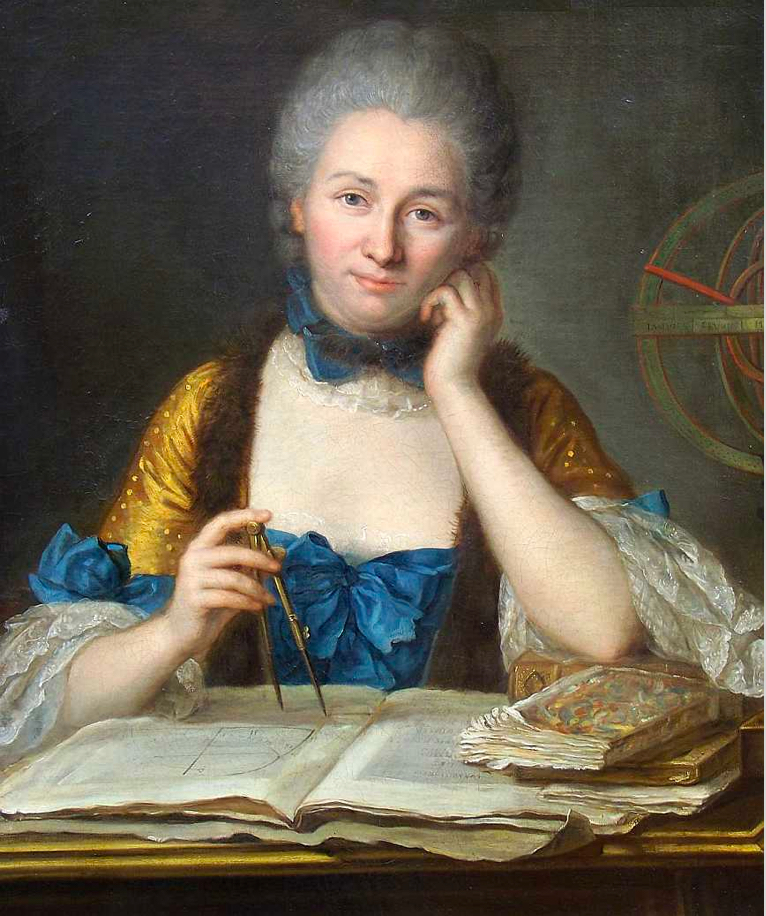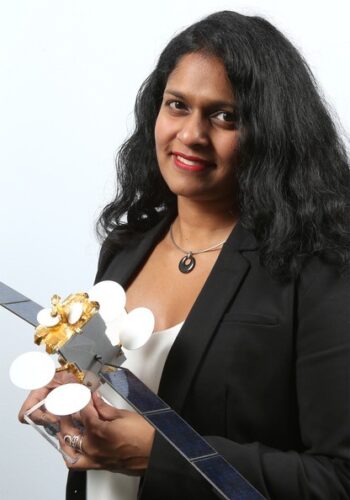Why a career in tech?
As a child, I spent my summer holidays with my grandparents, a stone's throw from the Bois-Rouge sugar cane factory on Reunion Island. The big gears that I saw turning immediately fascinated me. I wanted to understand how these machines worked. My grandfather worked there and passed on his knowledge to me. I really chose mechanics as a domain of expertise because for me its understanding is easy, visible and tangible. It surrounds us every day and it speaks to me quite naturally.
There was also a poster in my father's office showing an astronaut in space with a propulsion system. At the time, I didn't know what this system was, but the image of a human being in space made me dream.
Your professional experience?
Always passionate about science, I had to leave my native island, Réunion, after two years of a DEUG in Science and Technology for Engineering, to study in Toulouse in an IUP in Mechanical Aeronautical Engineering.
I started working as a structural engineer in a design office. I then specialized in telecommunications satellites by becoming responsible for the digital model where I began to develop a taste for the multi-expertise and international context. Later, I was in charge of the antenna interfaces during the intense design phase within the project teams. I then became a mechanical architect for telecommunications satellites, responsible for all their sizing and mechanical validation. Today, I occupy a transverse position focused on business and technical communication.
Your first experience with technology?
I did an internship in the second year of graduate studies in an aeronautical maintenance office at Air Austral. The little girl who rolled her eyes wondering what was up there and how it was possible was delighted to finally find the answers to her questions. I was determined to continue my studies in this field.
What do you do today, and why?
I am responsible for technical communications. It is about contributing to all communications of my company and its leaders internally or externally on our products and innovations. I manage this as well in collaboration with the customers.
After more than 10 years in the technique working on various projects in the design phase, I wanted to see the upstream phase. Thanks to my position, I was able to understand the communications satellite market, the associated strategy, and grasp the technologies of the future.
Your strengths in this role?
Creativity without a doubt to highlight the strengths of our products and of course a good knowledge of the architecture of telecommunications satellites.
You also have to be very responsive to respond to requests and control your stress. And for that, a good analytical mind makes it possible to find effective solutions.
Past challenges, failures and disappointments?
My biggest challenge was leaving my family to pursue my studies and my dreams. It’s my biggest sacrifice and succeeding was the only option.
So I experienced great moments of loneliness despite the family support from a distance.
But it made me grow up, I learned to fend for myself and ultimately to adapt to whatever the situation is, that's one of my strengths today.
Best moments, successes you're proud of?
Graduation and my first day at my current company were my first successes. I said to myself "this is it I got there, all the sacrifices paid off". And then, what a thrill to see the launch of the satellites I worked on!
I also remember my first time on stage as a singer. It was magic, a good dose of adrenaline!
I also traveled around the world solo for a year in 2015. It was an incredible adventure! Every day there was a discovery, an encounter that fed me and made me appreciate the simple pleasures in life. I heightened my observation skills and my ability to adapt. I stepped out of my comfort zone too.
Finally last November, I was patron of the science festival in Martinique, what pride to represent women in the space and aeronautics world, to “sow” stars in the eyes of children and to show them that we can do it despite the difficulties. These areas are not enough visible in the french overseas territories and departments. This type of initiative is essential to create the spark.
People who helped, influenced -or made your life difficult?
My grandfather and the rest of my family passed on to me the sense of effort and the importance of studying in order to succeed, especially in a difficult and discriminatory environment.
I was unfortunately confronted with misogynistic teachers in mechanics class or with racist remarks during my life but I do not keep any anger but rather the pride of having shown them that they were wrong by not giving up and being where I am today.
Your hopes and future challenges?
Develop PAPANG ’Outre-Mer non-profit organisation to help french overseas youth. It pursues two objectives based on sharing the experience of professionals with young people: discovering new career prospects and improving self-confidence, and supporting french overseas students on the move to their place of study. There are subjects dear to my heart from my personal experience.
What do you do when you don't work?
I take part in many initiatives to make young people aware of scientific careers and to fight for equal opportunities. I want to give them confidence in the future, change mentalities and break down stereotypes by opening up the field of possibilities.
I also continue to sing with my band and play sports to relax. I also hope to soon be able to travel and explore new countries to get away from the daily routine.
Your heroes -from History or fiction?
Rosa Parks and Josephine Baker were committed women who stood up for their rights. I admire their courage and perseverance. The same goes for the three heroines of the film "Figures of the Shadows". These black American women of science were instrumental in the conquest of space at NASA as they underwent segregation.
For me, who dreams of going to space one day, I was also very appreciative of the career of Claudie Haigneré, the first French woman to go there. She is inspiring.
A saying or proverb you like in particular?
When the mind grapples with something, however long and difficult the path, nothing is impossible
A book to take with you on a desert island?
I'll take a puzzle book or a gamebook to continue to stimulate my neurons. In addition, it allows to have several scenarios to consider instead of a single story.
A message to young female professionals?
Knowledge is a formidable tool in establishing equality. So believe in your potential, learn, and most importantly, never hesitate to go where you are least expected to be. Prove anyone who tells you that you can't or are not capable to do something, that they are wrong and make your dreams come true.



